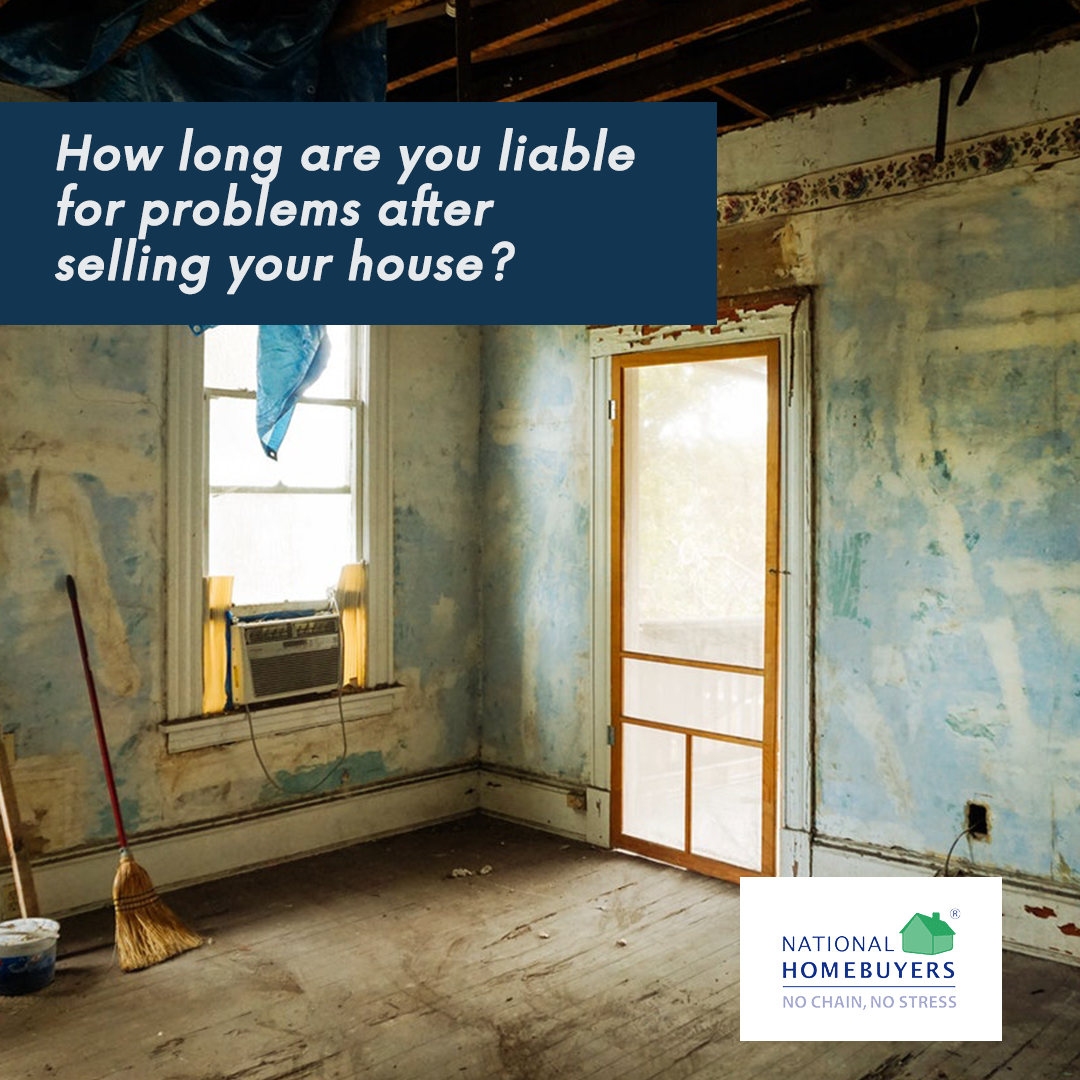What Does a Recession Mean for House Prices?
With rumours growing over recent months surrounding the possibility of another severe recession taking place sometime in the near future, many homeowners are asking how this could affect the value of their home.
What is a recession?
If you have lived through the eighties, nineties and noughties – it’s more than likely that you will have been experienced the consequences of a recession. But what exactly is a recession?
In the UK, a recession takes place when the economy experiences two consecutive months of negative growth¹. Negative growth is when the GDP – or gross domestic product – falls over a six-month phase¹.
Using this definition, it can be shown that over the last 70 years, there have been six clear recessions that have had a negative effect on the UK economy – 1974, 1975, 1980, 1981, 1991 and 2008².
A recession itself can be short-term, but its effects can certainly be felt for years after, especially in areas of moderate to severe deprivation. However, the way a recession affects certain industries often depends on the time during which it occurs.
During the Great Depression in the 1930s, for example, it was recent introduction of the gold standard that caused the most suffering, putting a strain on many financial institutions, and ultimately leading to the UK leaving the gold standard in 1931³.
In the 1970s, the political fallout of the Yom Kippur War led to an embargo on oil products from wealthy Arab nations, almost quadrupling the cost of fuel overnight and leading to many companies in industries that were reliant on a steady flow of the resource to collapse within weeks.⁴
The latest recession that took place in the UK was the 2008 ‘Great Recession’ as a result of the sub-prime mortgage crisis by banks on both sides of the Atlantic and is considered the worst financial crisis since the Second World War. During this time, the unemployment rose by a shocking 8.3%, and manufacturing output fell by 7% – the worst statistics since 1994⁵.
It was during this time, however, that many financial banks and lenders found themselves needing to be bailed out by the government, leaving those who had borrowed money from these lenders for purchases such as housing mortgages in dire straits6.
How does a recession affect property?
The effect that a recession has on property is often dependent on the rate of inflation leading up to the crisis itself.
In the decade leading up to the most the financial crisis, the value of sold house prices grew sharply creating a bubble that enticed many investors and homeowners to place themselves in position of unnecessary risk – buoyed by the confidence of the lenders who were willing to grant those without a sizeable deposit up to 95%-100% contracts7.
For those who bought their homes closer to the turn of the century, the profit they had made through sky-rocketing inflation counter-balanced the fall in house prices that occurred as a result of the crisis. Unfortunately, many who had only bought within the short period of time leading up to the recession – especially those who took high-risk mortgages – found themselves in negative equity with high interest repayments they could not afford.
Is a recession a good time to sell a house?
Whether or not selling a house during a recession is a good idea is very dependent on your situation. If you live in a wealthier area such London, then it is more than likely that the value will recover quite quickly once the recession is over. If, however, you live in an area that is less in-demand by buyers, the likelihood is that you could be waiting more than a decade for values to return to normal.
For example, as late as September 2018, while average properties are now 17% above where they were pre-crisis, regional differences paint a different picture. In the capital prices were over 40% higher than they were before the financial crisis, but in Northern Ireland house values were still 40% lower than they were before the recession8. For many people, they would rather lose money on their house than wait another 15 years to sell at a profit.
There will always be certain buildings that demand a premium price and are likely to weather the storm of a financial crises, but these tend to be either listed, or include unique selling points that attract wealthy buyers.
How to sell a house during a recession?
If you need to sell a home fast at a time when the vast majority of the population are struggling to cover their monthly costs – and by proxy cannot save for a deposit that would be accepted by a lender – finding a buyer can be a very difficult task. This is especially true when taking into account that the number of mortgages being approved in 2018 were still 40% lower in volume than before the 2008 crisis.8
Luckily, however, there are alternatives that many potential sellers tend to overlook.
By examining the rate of values as they fall, it’s not hard to see that waiting can often reduce your potential profit further – particularly if you live in a low-income area. In situations such as these, it is advised to sell as soon as possible, as once the recession is over there is no guarantee that your home’s value will recover in the short-term – even to the price that you manage to sell it for during a failing market.
There are, thankfully, companies who keep track of the property market and are willing to buy your house directly, for cash. The benefit of companies such as these is that they revolve around the idea of completing purchase in a much shorter space of time than a normal sale – which is great news if you are a seller and can not afford to wait around.
Furthermore, house-buying companies such as National Homebuyers will buy a house in any condition or situation, providing you with capital that can be used immediately, allowing you to capitalise on the purchasing opportunities available during a weak market, such as the possibility of buying a brand new home for a bargain-basement price from a house-building company who are desperate to shift their portfolio.
How will the housing market look in the next recession?
As of Q3 2019, fears have been growing rapidly regarding the possibility of another recession – partly fuelled by the fears of a stilted economy once the UK leaves the EU as planned9.
Even in a health economy, the ability of younger generations in the modern age to be able to afford their own home – even considering the large number of schemes put forward by the government over the last ten years – is a lost cause for the majority10.
Many analysts believe that the next recession will punish Millennials further11. While this may not seem to be an issue for many older homeowners who wish to sell, it is important to remember that the search for a willing buyer will be exponentially harder if the pool of potential buyers continues to decrease.
This means that many older homeowners who wish to downsize – trading their expensive larger houses for smaller, more affordable ones – may find the process extremely tricky, heavily affecting the status of their wealth into retirement.
It is, at this point, impossible to say how the housing market will look after the next recession. With so many variables in the air, even respected analysts are finding themselves at odds with one another. But as many economists have pointed out, the outlook would be a lot less bleak if the decision to leave the EU is reversed12.
Are you looking to sell your home due to worries about recession? Why not ask National Homebuyers for advice, as we buy any house. Call 08000 443 911 or request a call back to find out how much you could get for your property before it’s too late.
Sources:
¹BBC (Anon) (2008) Q&A: What is a recession? Available: http://news.bbc.co.uk/1/hi/business/7495340.stm. Last accessed 10th Sept. 2019.
²Office for National Statistics. (2013). UK GDP since 1955. Available: https://www.theguardian.com/news/datablog/2009/nov/25/gdp-uk-1948-growth-economy. Last accessed 10th Sept 2019.
³Pettinger, T. (2017). The UK economy in the 1930s. Available: https://www.economicshelp.org/blog/7483/economics/the-uk-economy-in-the-1930s/. Last accessed 10th Sept. 2019.
⁴Smith, Charles D. (2006), Palestine and the Arab–Israeli Conflict, New York: Bedford, p329.
⁵Leaker, D. (2015). LFS: ILO unemployment rate: Great Britain: All: %: SA. Available: https://www.ons.gov.uk/employmentandlabourmarket/peoplenotinwork/unemployment/timeseries/ycno/lms. Last accessed 10th Sept 2019.
6Morrison, C. (2018). How the global financial crisis hit the UK housing market. Available: https://www.independent.co.uk/news/business/analysis-and-features/global-financial-crisis-lehman-brothers-property-house-prices-uk-housing-market-a8538176.html. Last accessed 10th Sept 2019.
7Chu, B. (2018). Financial crisis 2008: How Lehman Brothers helped cause ‘the worst financial crisis in history’. Available: https://www.independent.co.uk/news/business/analysis-and-features/financial-crisis-2008-why-lehman-brothers-what-happened-10-years-anniversary-a8531581.html. Last accessed 10th Sept 2019.
8Bruce, A. (2018). Britain’s lasting scars from the financial crisis. Available: https://uk.reuters.com/article/uk-britain-economy-crisis-graphic/britains-lastin-scars-from-the-financial-crisis-idUKKCN1LX0FY. Last accessed 10th Sept 2019.
9Sentance, A & Blanchflower, D. (2019). Recession looms for Britain – two experts on the economic outlook. Available: https://www.theguardian.com/business/2019/aug/28/recession-looms-for-brexit-britain-two-experts-on-the-economic-outlook. Last accessed 10th Sept 2019.
10Inman, P. (2015). Young people in UK increasingly giving up on owning a home – Halifax survey. Available: https://www.theguardian.com/money/2015/apr/07/young-people-uk-increasingly-giving-up-owning-home-halifax-survey. Last accessed 10th Sept. 2019.
11Lowrey, A. (2019). The Next Recession Will Destroy Millennials. Available: https://www.theatlantic.com/ideas/archive/2019/08/millennials-are-screwed-recession/596728/. Last accessed 10th Sept 2019.
12Clark, E. (2019). What will Brexit mean for house prices? Available: https://www.which.co.uk/news/2019/09/what-will-brexit-mean-for-house-prices/. Last accessed 10th Sept 2019.






